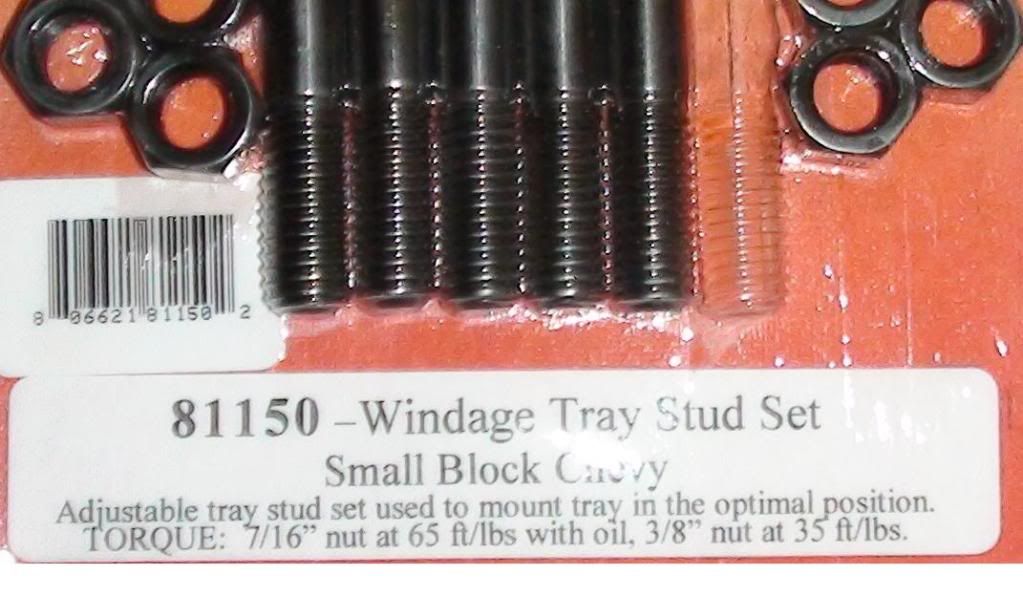colormebad wrote:I never said 100's in the 38 years! That many was done in a few years....My engines i build including the 1 in my own car speaks for itself....I guess its a sin to have friends at many of machine shops around the world...Sorry for that...I also know how many of them other so call machine shops charge you for line-hones and other work they didn't even do...I did say i have ALL my blocks checked but i wouldn't line hone a block that didnt need it..Be kinda stupid wouldn't it ??? Like someone posted...This thread getting kinda funny & stupid...Always a smartass in every forum....Im out and all take care.....

Below you said out of 100's so that means like 200
Man your a busy fellow. So most people that are very busy and sell across the country use say 40-50 Dart/World/GM blocks then use 10-20 Factory blocks or more. Your using several 100 Dart's. That is amazing. You should be buying from Dart

colormebad wrote:Well lets see! I don't machine blocks' but have built many engines in my lifetime....about 38 years in oct...I have been to many machine shops all over and have watch them go from bolts to studs and watched them check line hone...All the better machine shops say the better blocks WILL NOT distort like your stock blocks..Don't get me wrong! I always make a run to have all my blocks checked...But i have only had 2 out of 100's of Iron Eagle & sportsman blocks that had to be line honed...Also' im not taking nothing from what you know' cause i dont run a machine shop like i said...But spend lots of time in them....Thanks
All the "better machine shops" say the better blocks wont distort like your stock blocks? Well being you do several hundred of them what is your opinion? Im asking you your opinion because it is very minimal right now.
Maybe if you torqued the mains correctly they would distort the caps because procedure makes a huge difference

As to the original question, here is my opinion. Just my $.02 and what I see with factory blocks.
- when the blocks have nodular caps I use ARP studs, they go 85/oil & 80/moly and the GM nodular caps IMO are fine with this force
- when the block has a std cap, 2 or 4 bolt, I use Milodon studs because you have the gain of the stud (more clamping force just being a stud) yet not too much. I have seen issues with non nodular caps and the ARP studs. I think they stress the caps way too much but the Nodular caps I dont see the issue with. So on these use Milodon studs or bolts
As to the studs IMO you should keep the nut and washer with the stud it belongs on. Maybe I go over board but it is my belief and nothing will change that.
I think the bolt "COULD" help locate the cap a little better if the register was loose so if the register is loose with a stud I could see it moving a little compared to a tight register and studs.
Also when your seeing the fretting of the main caps is it after installed? One year later? Three years later?
An ARP main stud or main bolt should be treated like a rod bolt. They have a great deal of stress on them from both increased clamping force & loads in the engine also detonation. So knowing this main bolts or studs should be changed IMO ever few years to the same part that came out (I have not seen issues installing new studs and/or bolts of the same design unless their is a change to torque as their was with SBC studs a few years ago) The GM bolts do not have the stress an ARP does.
One reason it is possible you dont see a ton of failures from GM bolts but do with the caps is the crankshaft could be tweaking the cap.
Hard to explain. The bolts are in the block straight, the crank doesnt push straight down, it side loads the caps (this is where worn registers and splayed caps come in to play) and the side that is taking the abuse is stretching the bolt yet the other side is tight, BOOM you have a broke cap sort of like locking a lid down on one side (the tight bolt side) and lifting up on the other side (the side of the cap stressing the bolt/cap) of the lid WILL BREAK IT SOONER OR LATER.
Also if your using loctite are you running them in hand tight with the loctite WET and torqing the stud and letting it set up????? You should IMO burnish the threads first before doing final torque with loctite. Based off rod bolts that give the correct stretch (Scat's Pro Comp I Beams are pretty much on) I would burnish the threads 4-5 times on the main studs. I prefer to torque it down until the cap seats and pull them snug (10-20) then in one full steady pull, pull them to tq level needed





